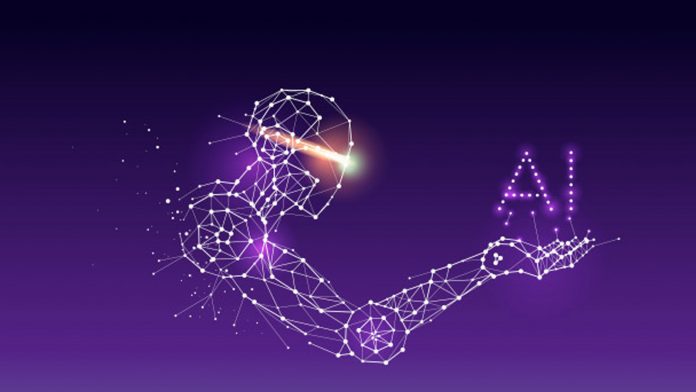This article has been written by Alka Kumari, from Banasthali Vidyapith.
Table of Contents
Introduction
Artificial intelligence is the skill of a computer or machine to do the tasks that eventually require human intelligence. Generally, it is a machine or robot that actually thinks and acts like a human brain. In today’s world, it has grown to be very popular as it is spreading its roots in different areas by utilizing the idea of making computers study and handle the multifaceted tasks that formerly required human intelligence.
The main reason behind the development of artificial intelligence is the need and requirement for mechanization in this high paced life of people as it is impacting our lives in a positive manner. On the other hand, the Indian legal system has seen a very slight improvement in terms of technology as lawyers are still comfortable in relying on their old methods. So, basically, this article deals with artificial intelligence and how it is being used by law firms, advocates and people and companies who are governed by the law. It covers the relationship between artificial intelligence and law in education, research and innovation practices.
Present scenario of artificial intelligence in the Indian legal profession
Artificial intelligence is a computer or robots that are capable of doing all the tasks that require human intelligence. It helps people by freeing them from their routine tasks. It matches human-level thinking and allows people to concentrate more on tasks that can’t be done by computers.
It is the science of teaching computers how to study reason, recognize, suppose, communicate, and make decisions like humans do.
It has both positive and negative impact on people as it helps in doing our work efficiently and effectively but on the other hand, it can literally seize the employment of thousands of people.
A combination of the concept of artificial intelligence along with law involves the use of computer and mathematical techniques to make the law more logical, convenient, helpful, handy, or predictable.
Artificial intelligence brings the skill to search for concepts like contract review and analysis for due diligence, to recognize changes in tone of email communications, even to draft where the computer understands what needs to be drafted and prepares the document.
The legal profession in India is quite manual and traditional. Senior advocates are a little hesitant towards the concept of artificial intelligence in law. No doubt that they are now using laptops/computers instead of typewriters, or using online websites for legal research work (like Manupatra and SCC online) in place of books, or sending mail through fax machines, they have always been transformative. However, it is also true that people take some time to adapt new tools.
However, some lawyers are changing their attention towards artificial intelligence as it has the capabilities to change the manner in which law firms and lawyers are currently operating. But at the present, artificial intelligence is at its initial stage in India and it will take some time for its proper implementation.
The improvement of technology in the law field has definitely led to a growth in the functions of legal professionals. It can play a big role in changing the way lawyers work and the law is looked at in India.
Different types of companies, which are dealing in artificial intelligence and law, have always been looking out for ways to expand technology for providing enhanced speed and accuracy in the legal profession. So, even common people can easily get access to justice.
In India, artificial intelligence is finding ways to improve the quality of work. As practised, computers and robots are not able to replace the lawyer’s role in court but it has the power to do research work and to draft a document. The office role of lawyers might be reduced to a great extent. As the tools developed through artificial intelligence helps in drafting various legal documents.
The Indian legal system is extremely large and our constitution is the lengthiest one. A lawyer would want to try to do multiple tasks like drafting a document and physically attending to their clients. So, with the use of Artificial intelligence, advocates will get their work done in seconds.
The research work done by lawyers requires a variety of man-hour and it conjointly reduces the profit. So, with artificial intelligence, the whole legal society can be balanced as it solely takes seconds to get the research work done. It helps in saving the drafting time and lawyers get longer time on Judicial proceeding work.
It helps lawyers to perform due diligence and research by providing them extra insights and shortcuts through analytics. Even there are various areas under which law professionals will use artificial intelligence technology.
We can even notice that in this pandemic, technology has paved the way for multi-functional devices as it has also made our lives easier, quicker, improved and exciting.
Today, it is an essential tool that we cannot avoid. This is because life without technology is meaningless in this dynamic world. It is a part of our lives and is one of the ways for our survived in this world.
Advantages of artificial intelligence for law professionals
It is presumed that artificial intelligence has an excellent scope because there are many fields in which it is helpful.
Due diligence
It is a method that involves a long number of operating hours as litigators are required to review multiple documents. It includes contract review, legal research, electronic discovery and it is very difficult to organize and convert them in a small amount of time. So with artificial intelligence technology, the tiresome work can be done easily.
Research work
Research works are very complex in nature and it requires long man-hours and their attention. Thus, by artificial intelligence technology, the law researchers can complete their work effectively and efficiently in a minute as it provides relevant material in only one click. The legal research will be optimized by this and lawyers can get enough time for specializing in legal analysis, negotiation and strategy instead of spending time on daily routine tasks as computers are capable of doing the tasks far earlier than even the foremost trained human.
Technology prediction
Artificial intelligence software system predicts the potential outcome of a pending case or of the new case instituted in front of the court of law. Machine learning software systems are capable of grouping a lot of data and this data will be used to build the predictions. These types of information are also more reliable than the predictions created by legal professionals.
Analysis of legal documents
The artificial intelligence software system helps the legal practitioners to find the precedent law and also provides the judgments to be used in their present case.
Automated billing
The artificial intelligence software system helps in the preparation of invoices for the lawyers in step with the work done by them. By this, the law firms and lawyers will simply interpret the precise amount of stipend’s bill of the work done by the practitioner underneath them. It will conjointly allow lawyers to spend more time dealing with client matters.
Challenges of artificial intelligence in Indian law
Senior advocates are a little hesitant in adopting these technologies
Artificial intelligence is a brand new technology in law. Lawyers are unwilling to use this technology as a result of the rumours that it’ll snatch their job. They are of the view that this can cause unemployment in the country.
Expensive
The artificial intelligence machine needs an enormous quantity of investment in terms of cash and it is very difficult for small lawyers and law firms to afford these kinds of technologies.
Protection of personal data
Artificial intelligence is created in such a way that it’ll keep the private data of the parties. So, it is very necessary to keep the client’s personal information safe and secure. Data protection measures should be taken by artificial intelligence providers for safeguarding the client’s information.
Legal identity and liability
Currently, artificial intelligence has no legal identity and it is a major discussion that whether it has its own rights and duties? Because what if the software did something wrong? Who will be held liable for? There are a lot of problems in the legal background for its liability.
Whether or not the introduction of artificial intelligence will replace lawyers?
The reality is that the introduction of artificial intelligence programs won’t replace the lawyers but will help them in increasing their authenticity and accuracy of research work.
While it will reduce their workload and will provide result-oriented ideas to their clients, it will also create new opportunities for them. This is the biggest misconception that it will take their job, but in reality, it is not possible because even though a machine can do research work it can’t perform the role of a lawyer in front of the clients or in court.
As our Chief Justice also stated that artificial intelligence is there to help lawyers and judges for speedy delivery of justice and can never replace them[1].
Artificial intelligence related development in the Indian judicial system
Supreme Court Vidhik Anuvaad software
The Supreme Court of India has recently launched an official artificial intelligence-based application for translating English legal documents and orders into nine other dialect languages. This is the first step taken by our judiciary in respect of artificial intelligence[2].
The Supreme Court of India’s multilingual official mobile application
It is an application launched by the Supreme Court. This application will provide the right to read the case laws, regular guidelines, decisions, display board and other information in a click.
E-Courts or virtual courts
This is a major development by the judiciary as it will save the time, energy and money of the citizens as all the important data regarding courts orders and judgments are available online at zero cost[3].
Artificial system to read legal orders developed by IIT-Kharagpur
IIT Kharagpur has come up with artificial intelligence technology. It is machine learning technology that has the ability to highlight the laws which are being violated and to read legal orders and judgments.
Government initiatives
In 2018, NITI Aayog released a policy paper titled ‘National Strategy for Artificial Intelligence’, which considered the importance of artificial intelligence in different sectors[4].
The budget of 2019 also proposed to launch a national programme on artificial intelligence.
Artificial intelligence related start-ups in India
Spot draft
It will review contracts in minutes. It is a Gurugram based startup that is capable of reviewing contracts as per our requirements. It offers its clients a choice to draft and sign contracts. It also has features of automatic reminders and expenditures.
CaseMine
It is an artificial intelligence-based legal research platform started by Anuradha Yadav that helps to find the links between various case laws. It also provides an outline of case laws that helps in making the legal research more extensive in less time.
Case IQ
This is a machine that can act as a legal associate in research work as it can work as an assistant by pointing out various relevant case laws which might be omitted or can recommend alternative arguments. Even it can highlight applicable judgment for the current situation.
Nearlaw
It is also an artificial intelligence-based solution in Mumbai for law professionals. It uses NLP technology (Natural language processing) to grasp the connectedness of case ranking.
Pensieve
It is also a legal research platform based on artificial intelligence called Mitra. It is being used by many customers. Currently, it is collaborating with IIT-Madras to develop the product and it is also used by other firms too.
Practice league
It is a platform that authorizes natural language processing based applications research platforms that helps law professionals to search beyond the straightforward, keyword-based research. This firm is also working with Google and Amazon in order to receive artificial intelligence skills into its working methods.
Recently, in 2017, Cyril Amarchand Mangaldas became the first law firm to deploy artificial intelligence Canada based company, Kira, software that uses artificial intelligence to identify, examine and separate provisions and alternative information from legal documents with a high degree of accuracy[5].
Impact of artificial intelligence on the Indian judiciary
There is more than 3 crore pending cases in the judicial system. The judges are required to do a lot of work. So, artificial intelligence technology can help them in delivering the judgment speedily.
The future aspect of law professionals
Today, the expansion of artificial intelligence within the Indian legal system has been restrained. However, it is supposed that in the future, it has an excellent scope for lawyers and a mixture of artificial intelligence and law can observe the immense growth within the coming times and future. Future law companies and lawyers would be completely different from what we tend to see these days. The law professional will concentrate on:
Serving quality work to their clients
The way the clients are served today will change in future. Since the model of law firms is to ensure and achieving maximum productivity and money, their services are based on hours and they also charge a heap of cash from their clients. This would go outdated in the coming time. They are going to change their serving strategies and would opt for client’s pocket-friendly charges; this can conjointly build up the professional relations.
Law professionals will focus more on making profits
The competition between law firms is increasing day by day, however, the demand for legal services is constant. Thus, in future, law firms wouldn’t specialize in financial gain, but on higher profits.
Making technology the inspiration for growth
Artificial intelligence-based law firms can become well-organized and presumably decrease prices and gain higher profits. Future law firms wouldn’t only adopt these technologies but will also collaborate with different companies to create Artificial intelligence-based solutions that would further improve their legal area.
Emphasis more on brand reputation
In future, law firms would focus more on their brand name because of the reason that a casual recommendation from simply a number of folks can spoil the firm’s name. Therefore, in order to develop the brand value firms have to rely on artificial intelligence-based legal solutions.
Conclusion
It can be concluded that artificial intelligence in law has many advantages. It is very useful for law firms for many works like due diligence, collection of data, research work etc. It has much benefit that is why even the higher amount of investment is overwhelmed by the benefits derived by the law professionals.
It is also true that it will not replace the position of lawyers but will assist them in doing their work. It can’t take the place of lawyers in court as it doesn’t possess any type of emotional intelligence. The advancement in technology will assist lawyers in doing their work efficiently by making them more capable of delivering quality legal services to their clients.
The future of the Indian legal system without artificial intelligence software is very hard to believe as it helps lawyers to find relevant case laws and statutes. Even the complex questions of parties can be answered by this in a very simple and understandable language.
There is a chance of artificial intelligence replacing the manual work of the professionals and the role of lawyers in front of the court might be the only role they can play. Currently, there are many areas in which it is being implemented in the law field. It also has some challenges that can be dazed by safeguarding the integration of it. A balanced approach would be required to be adopted for the effective implementation of artificial intelligence. There is a need for data protection laws for artificial intelligence users while managing, recovering and using the data.
It has a great scope in India with lots of firms and lawyers opting for artificial intelligence automation.
The upcoming time of law firms and lawyers with training in artificial intelligence and want to adopt to the emerging technologies seem positive and bright. There is a lot of opportunity for growth for the implementation of artificial intelligence in the Indian legal system. It is the need of the hour and the same has been implemented by many people in the legal industry. It has a dual effect on the legal sector. It also has pros and cons. So it’s the right to cope up with the disadvantages of artificial intelligence by adopting it in a systematic way. The Indian judiciary system will get a great benefit from artificial intelligence.
References
[1] Editorial, “Apex court is exploring the possibility of adopting AI” The Hindu, Jan 12, 2020, 1:18 PM
[2] https://www.jagranjosh.com/general-knowledge/supace-portal-use-of-artificial-intelligence-ai-in-indian-judiciary-1618316032-1
[3] E-courts services available at, https://services.ecourts.gov.in/
[4] National Strategy for Artificial Intelligence, NITI AYOG (June 2018)
[5] https://www.legallyindia.com/law-firms/cyril-amarchand-hires-azb-hr-head-kiran-patheja-as-chief-in-house-head-hunter-20170118-8233
LawSikho has created a telegram group for exchanging legal knowledge, referrals, and various opportunities. You can click on this link and join:
 Serato DJ Crack 2025Serato DJ PRO Crack
Serato DJ Crack 2025Serato DJ PRO Crack











 Allow notifications
Allow notifications


